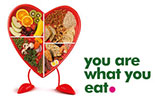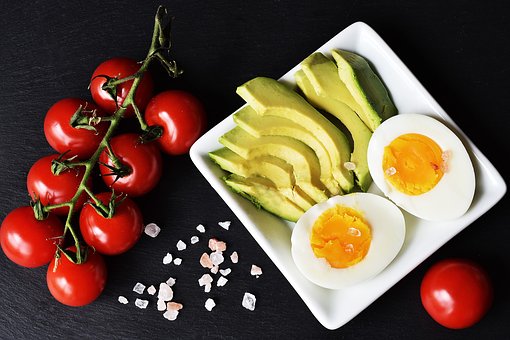Ketogenic Diet for weight loss, Part one
These days, ketogenic diet or ketodiet is trendy for weight loss. Ketogenic diet has long been used to control certain types of seizures in children. Recently, it has garnered more attention for weight loss and even diabetes and Alzheimer’s disease. In fact, whenever the amount of carbohydrate ingested from daily diet is reduced less than a certain amount, body enters to a biochemical condition called Ketosis. There is a long history of low carbohydrate diet for weight reduction including Atkin’s diet, Paleo diet, protein diet and now ketodiet.
Unfortunately, the research results on ketodiet regarding long term weight loss and adverse effect is not enough and contradictory.
The total and net amount of carbohydrates ingested in ketodiet is minimized. As a result, the fat accumulated in the body turns into ketone compounds and is used as a source of energy (so-called fat burning). Over liver is responsible for conversion of fat deposits into ketone compounds and their consumption as a source of energy. Being said that, the liver plays a major role in ketodiet, which exerts extra burden on the liver.
Let’s look at the foods can be used in the ketogenic diet. One should bear in mind that the foods that can be used in this type of diet include healthy and unhealthy choices. Lowering the amount of carbs in the diet and consumption more fats and proteins doesn’t necessarily mean that what we get in ketodiet will certainly be healthy or unhealthy.
1- Seafood: Most fish and Shellfish can be used in ketodiet, except for Mussels due to their higher carbohydrate content.
2 – Meat and poultry: Meat and poultry are allowed in ketogenic diet because of their lack of carbohydrates. In order to minimize the damage caused by saturated fats in meat and poultry, it is advisable to use meat from grass-fed animals, as when grass-fed, the type of fat stored in their body, would be a healthier one.
3 – Eggs: Due to low carbohydrate content, it is one of the most recommended and commonly used choices in the ketogenic diet.
4 – Low-carbohydrate vegetables: green leafy vegetables such as spinach, lettuce, cabbage, cauliflower, broccoli, and Brussels sprouts, green squash, sweet peppers, mushrooms, asparagus, cucumbers, celery, tomatoes, onions and eggplants are among the vegies allowed in the ketogenic diet.
5 – Cheese and Yogurt: High fat cheeses such as mozzarella and cheddar can be used in this diet. Also, yogurt is allowed due to its low carbohydrate content.
6 – Different types of vegetable oils: All vegetable oils can be consumed because of their lack of carbohydrates. Among vegetable oils, olive oil, avocado oil and sesame oil are the healthiest. Avocados itself is also used as a healthy vegetable fat source.
7 – Nuts and seeds: They are allowed due to their low carbohydrate content. Most of the nuts and seeds are considered healthy and nutrition if used in proper amount and unsalted. Among nuts, only cashews have higher carbohydrate content and should be carefully planned in ketogenic diets.
8 – Dark Chocolate: 100% dark chocolate includes very little carbohydrate and included in ketodiet. Most dark chocolates include only 70% of pure chocolate and should be used cautiously.
9 – Tea and coffee: Tea and black coffee with no added milk, cream or sugar is allowed in ketodiet.
10 – Berries: Most fruits contain carbohydrates (sugar) and cannot be used in the ketogenic diet. Among fruits, strawberries, blackberries and raspberries have low carbohydrate content and are good choices for ketogenic diets. Blueberries have more carbohydrates and should be used with caution.
11- Coconut Oil, Butter and Cream: These items are allowed in ketodiet. Coconut oil contains medium-fatty acids which are considered healthy fats however due to high saturated fat content, it’s not recommended to be used in larger amounts. Butter and cream also are high in saturated fats. As the results of research regarding effect of these fats with high saturated fat content on cardio-vascular disease is a matter of controversy, use them in moderation. In the case of butter and cream, the ones come from grass-fed animals are healthier.
Being said that, all types of cereals, legumes, most types of fruits and some vegetables, low fat cheeses and milk are not allowed in ketodiet.
I will go through adverse effects and precautions needed to be taken in ketodiet in the second part of this article.
Information provided here may not be appropriate for people with medical conditions or on certain medications. If you suffer from any medical condition or take any medication, make sure you consult with an expert in this regard.
Dr. Minoo Shirazi, Ph.D. Nutritionist & Registered Holistic Nutritionist, (MD, Iran)
ONTRACK Health & Nutrition Clinic
Toronto, Canada

